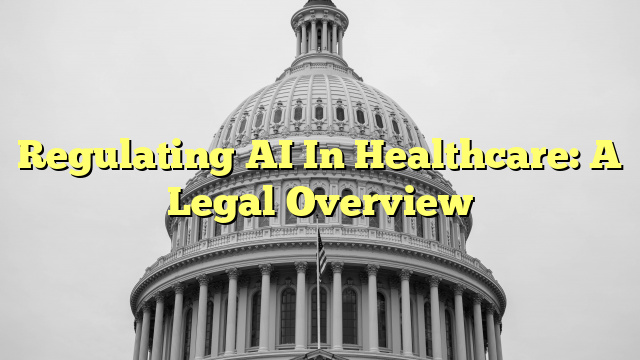Table of Contents
Regulation of AI in Healthcare
AI technology has rapidly advanced in recent years, and its potential applications in healthcare are vast. However, due to the sensitive nature of healthcare and the potential risks associated with AI, there is a need for regulation to ensure patient safety and ethical use of AI.
Regulation of AI in healthcare varies across different countries and regions. Some countries have specific laws and regulations in place, while others rely on existing frameworks for medical devices or data protection.
Key areas of AI regulation in healthcare include:
- Data privacy and protection
- Algorithm transparency and explainability
- Validation and testing of AI systems
- Liability and accountability
Laws Regulating AI
Several countries have implemented laws and regulations specifically targeting AI in healthcare. For example:
- The European Union’s General Data Protection Regulation (GDPR) provides guidelines for the use of personal data, including healthcare data, in AI systems.
- The United States Food and Drug Administration (FDA) has regulatory oversight over certain AI-based medical devices and software.
- Japan has established the Act on the Assurance of Medical Care Provided with the Use of Artificial Intelligence and Other Data, which sets requirements for the use of AI in healthcare.
These laws aim to address issues such as data privacy, algorithm transparency, and the safety and effectiveness of AI systems in healthcare.
Legal Challenges of AI in Healthcare
The use of AI in healthcare poses several legal challenges:
- Privacy and data protection: AI systems often rely on vast amounts of personal and sensitive data, raising concerns about data privacy and security.
- Algorithmic bias and discrimination: AI algorithms can unintentionally perpetuate biases, leading to discriminatory outcomes in healthcare.
- Liability and accountability: Determining liability for harm caused by AI systems can be complex, especially when multiple stakeholders are involved.
- Regulatory gaps: The rapid pace of AI development often outpaces regulatory frameworks, creating challenges in ensuring adequate oversight and accountability.
The AI Disclosure Act of 2023
The AI Disclosure Act of 2023 is a proposed legislation in the United States that aims to address the transparency and accountability of AI systems. The act would require companies to disclose when an AI system is being used in healthcare and provide information about its capabilities, limitations, and potential biases.
The act also proposes the establishment of an AI Regulatory Commission to oversee the use of AI in healthcare and ensure compliance with ethical and safety standards.
If passed, the AI Disclosure Act of 2023 would provide greater transparency and accountability in the use of AI systems in healthcare, helping to address some of the legal challenges associated with AI.

